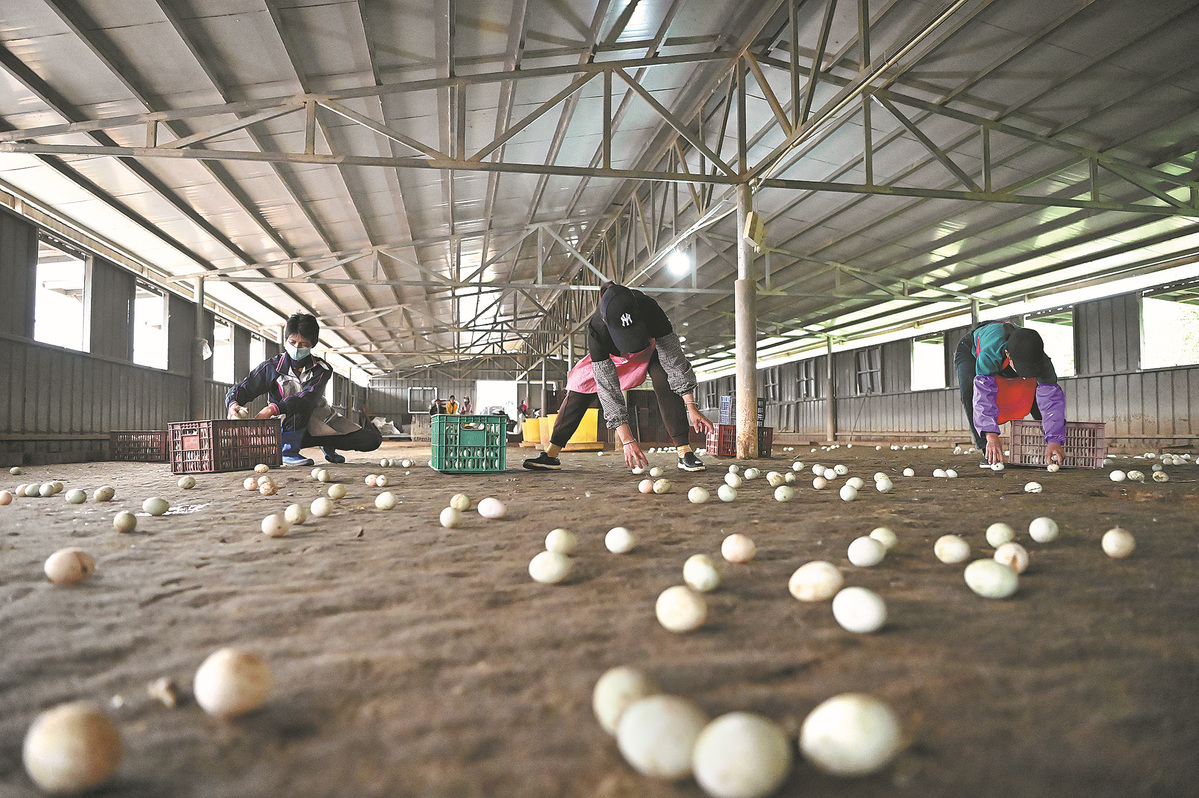'Money trees', sea duck eggs create jobs in Guangxi


NANNING — Villagers in Hepu county, in South China's Guangxi Zhuang autonomous region, skillfully braid the stems of young Pachira aquatica, dubbed the "money tree", forming them into attractive shapes.
"My father taught me this technique back when I was a kid; now, I can finish one piece in 10 seconds and earn over 300 yuan ($41.55) a day," said Wu Zuoye, a young resident of Dazhuangjiang village.
"The braiding season can last for eight months a year, and for the rest of the time I can also help with raising seedlings and pruning to make more money."
In Hepu, Dazhuangjiang is known as an "affluent village".
"People from our village don't have to leave their hometown to seek jobs, as we have the money tree planting business," said Zhang Baoyu, the village's Party secretary.
Almost all families living in Dazhuangjiang now cultivate money trees. By the end of last year, the village boasted 320 hectares of planting area for the trees, with an annual output value exceeding 100 million yuan, according to Zhang.
Money tree planting offers a glimpse into the progress of Hepu's agricultural development. Based on its hilly, coastal terrain, the county has been developing rural industries with distinctive local features in recent years.
At a demonstration base for sea duck farming in Qunzhu village, thousands of ducks are raised for eggs. When the tide comes in, it carries small fish and shrimp. In a short time, they are diverted to some two dozen ponds on the waterfront and become a meal for the sea ducks.
"For us, the duck eggs are 'golden eggs'," said Zhong Shengqing, an employee of the base.
- Former senior official of Ningxia sentenced to death
- Development program narrows urban-rural gap in Guangdong
- Wuxi Winter Bazaar creates cross-cultural gathering
- Expressway service area featuring a natural hot spring to open soon in Guangdong
- Former Ningxia political advisor sentenced to death for bribery
- Former senior official of Jiangxi expelled from CPC





































